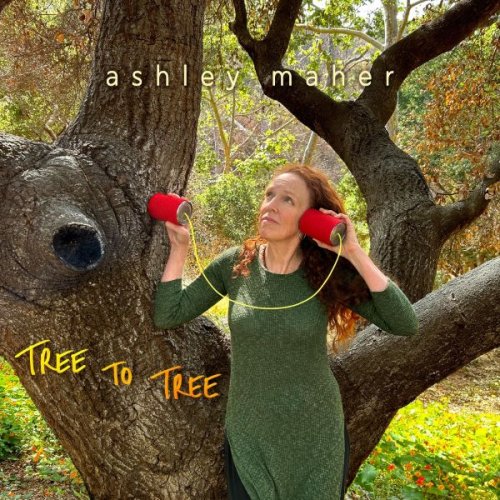Martha Argerich - Martha Argerich Plays Beethoven (2024)
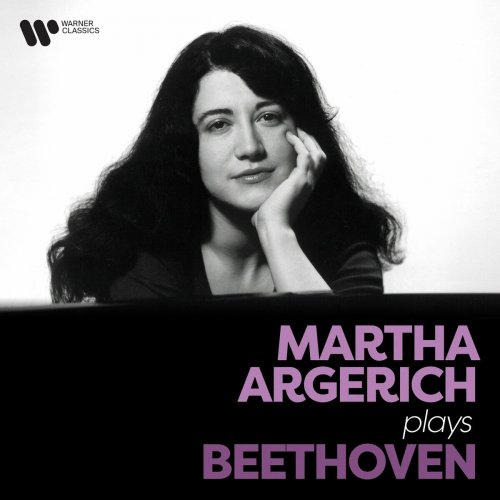
Artist: Martha Argerich
Title: Martha Argerich Plays Beethoven
Year Of Release: 2024
Label: Warner Classics
Genre: Classical
Quality: FLAC (tracks)
Total Time: 192:50 min
Total Size: 785 MB
WebSite: Album Preview
Tracklist:Title: Martha Argerich Plays Beethoven
Year Of Release: 2024
Label: Warner Classics
Genre: Classical
Quality: FLAC (tracks)
Total Time: 192:50 min
Total Size: 785 MB
WebSite: Album Preview
01. Beethoven: 7 Variations on "Bei Männern, welche Liebe fühlen", WoO 46: Thema. Andante (Live)
02. Beethoven: 7 Variations on "Bei Männern, welche Liebe fühlen", WoO 46: Variation I (Live)
03. Beethoven: 7 Variations on "Bei Männern, welche Liebe fühlen", WoO 46: Variation II (Live)
04. Beethoven: 7 Variations on "Bei Männern, welche Liebe fühlen", WoO 46: Variation III (Live)
05. Beethoven: 7 Variations on "Bei Männern, welche Liebe fühlen", WoO 46: Variation IV (Live)
06. Beethoven: 7 Variations on "Bei Männern, welche Liebe fühlen", WoO 46: Variation V (Live)
07. Beethoven: 7 Variations on "Bei Männern, welche Liebe fühlen", WoO 46: Variation VI (Live)
08. Beethoven: 7 Variations on "Bei Männern, welche Liebe fühlen", WoO 46: Variation VII (Live)
09. Beethoven: Piano Quartets, WoO 36: No. 3 in C Major: I. Allegro vivace (Live)
10. Beethoven: Piano Quartets, WoO 36: No. 3 in C Major: II. Adagio con espressione (Live)
11. Beethoven: Piano Quartets, WoO 36: No. 3 in C Major: III. Rondo. Allegro (Live)
12. Beethoven: Symphony No. 6 in F Major, Op. 68 "Pastoral": I. Erwachen heiterer Empfindungen bei der Ankunft auf dem Lande. Allegro
13. Beethoven: Symphony No. 6 in F Major, Op. 68 "Pastoral": II. Szene am Bach. Andante molto moto (Arr. Bagge for Piano 4-Hands)
14. Beethoven: Symphony No. 6 in F Major, Op. 68 "Pastoral": III. Lustiges Zusammensein der Landleute. Allegro (Arr. Bagge for Piano 4-Hands)
15. Beethoven: Symphony No. 6 in F Major, Op. 68 "Pastoral": IV. Gewitter. Sturm. Allegro (Arr. Bagge for Piano 4-Hands)
16. Beethoven: Symphony No. 6 in F Major, Op. 68 "Pastoral": V. Hirtengesang. Frohe und dankbare Gefühle nach dem Sturm. Allegretto (Arr. Bagge for Piano 4-Hands)
17. Beethoven: Triple Concerto for Violin, Cello and Piano in C Major, Op. 56: I. Allegro (Live)
18. Beethoven: Triple Concerto for Violin, Cello and Piano in C Major, Op. 56: II. Largo (Live)
19. Beethoven: Triple Concerto for Violin, Cello and Piano in C Major, Op. 56: III. Rondo alla Polacca (Live)
20. Beethoven: Cello Sonata No. 2 in G Minor, Op. 5 No. 2: I. (a) Adagio sostenuto ed espressivo (Live)
21. Beethoven: Cello Sonata No. 2 in G Minor, Op. 5 No. 2: I. (b) Allegro molto più tosto presto (Live)
22. Beethoven: Cello Sonata No. 2 in G Minor, Op. 5 No. 2: II. Rondo. Allegro (Live)
23. Beethoven: Piano Trio No. 4 in B-Flat Major, Op. 11 "Gassenhauer": I. Allegro con brio (Live)
24. Beethoven: Piano Trio No. 4 in B-Flat Major, Op. 11 "Gassenhauer": II. Adagio con espressione (Live)
25. Beethoven: Piano Trio No. 4 in B-Flat Major, Op. 11 "Gassenhauer": III. Tema con variazioni (Live)
26. Beethoven: Violin Sonata No. 8 in G Major, Op. 30 No. 3: I. Allegro assai (Live)
27. Beethoven: Violin Sonata No. 8 in G Major, Op. 30 No. 3: II. Tempo di minuetto, ma molto moderato e grazioso (Live)
28. Beethoven: Violin Sonata No. 8 in G Major, Op. 30 No. 3: III. Allegro vivace (Live)
29. Beethoven: Piano Trio No. 5 in D Major, Op. 70 No. 1 "Ghost": I. Allegro vivace e con brio (Live)
30. Beethoven: Piano Trio No. 5 in D Major, Op. 70 No. 1 "Ghost": II. Largo assai ed espressivo (Live)
31. Beethoven: Piano Trio No. 5 in D Major, Op. 70 No. 1 "Ghost": III. Presto (Live)
Martha Argerich is widely considered one of the greatest pianists of the late 20th and early 21st centuries. Unusually, her genius reveals itself mostly in collaborations: with orchestras and conductors in concertos, and with chamber musicians.
Of Catalan and Russian Jewish background, Argerich was born in Buenos Aires on June 5, 1941. She started piano lessons at five and made rapid progress, performing concertos by Mozart and Beethoven flawlessly just three years later. Her family moved to Switzerland in 1955, and she studied with Madeleine Lipatti, Nikita Magaloff, and then, for 18 months, with Friedrich Gulda in Vienna after Argentine president Juan Perón arranged for diplomatic work for her family there. Argerich won the Geneva International Competition and the Ferruccio Busoni International Competition in 1957, and she made a well-regarded debut album in 1960, featuring music by Liszt, Prokofiev, Ravel, Brahms, and Chopin. However, her real breakthrough was a first prize at the Chopin International Festival in Warsaw in 1965; she was the first pianist from the Western hemisphere to triumph, and the win brought publicity similar to that which attended Van Cliburn's International Tchaikovsky Competition victory in Moscow in 1958.
After her early years, Argerich rarely gave solo concerts, sometimes saying that she felt lonely on-stage. She recorded concertos, mostly from the late Romantic and early modern periods, with most of the major European conductors. Argerich began a long association with the Deutsche Grammophon label in the 1970s, and her 1975 release featuring concertos by Prokofiev and Ravel, with the Berlin Philharmonic under Claudio Abbado, had an iconic cover photo showing the two in intense conversation. Her 1985 recording of Tchaikovsky's Piano Concerto No. 1 in B flat minor, Op. 23, with the Royal Philharmonic Orchestra under Charles Dutoit, was another classic. Dutoit was one of Argerich's three husbands; before him came composer Robert Chen, and after him pianist Stephen Kovacevich, and she had children with all three. Argerich recovered from a 1990 bout with malignant melanoma and a 1995 recurrence; she was cured by an experimental treatment at the John Wayne Cancer Institute and performed a Carnegie Hall concert to benefit the Institute. She has continued to give widely praised concerto performances into senior citizenhood, appearing at the BBC Proms in 2016 with conductor Daniel Barenboim in the Liszt Piano Concerto No. 1 in E flat major. She has also been an enthusiastic performer of chamber music and duo sonatas, appearing and recording with Kovacevich, pianist Nelson Freire, violinist Gidon Kremer, and other choice players. In her later years, Argerich was widely known for her leadership of the Progetto Martha Argerich at the Lugano Festival in Switzerland, where she performed with and nurtured the careers of many young musicians. That festival came to an end in 2016 after its sponsor was investigated for possible violations of Swiss banking laws, but in 2018, she curated a new festival mounted by the Hamburg Philharmonic, and she has continued to serve as director of the Argerich Music Festival in Beppu, Japan, which she created in 1996. In 2019, she had a busy schedule of concerts across Britain, Switzerland, Italy, and Germany. Her concerts generally take up the mainstream of the concerto and chamber repertory, from Mozart to the early 20th century, but she has performed more contemporary music by her compatriot Alberto Ginastera, Witold Lutoslawski, and others.
Argerich has continued to record for Deutsche Grammophon but has also appeared on Warner, Decca, and other labels. Her recording pace has hardly slowed in her 60s and 70s; in the year 2015 alone, 11 separate Argerich recordings appeared (some were reissues of earlier material). In 2020, Argerich was heard on a new recording of Beethoven's Piano Concerto No. 2 in B flat major, Op. 19, with conductor Seiji Ozawa and his Mito Chamber Orchestra in Japan. By that time, her catalog included at least 175 recordings. ~ James Manheim
Of Catalan and Russian Jewish background, Argerich was born in Buenos Aires on June 5, 1941. She started piano lessons at five and made rapid progress, performing concertos by Mozart and Beethoven flawlessly just three years later. Her family moved to Switzerland in 1955, and she studied with Madeleine Lipatti, Nikita Magaloff, and then, for 18 months, with Friedrich Gulda in Vienna after Argentine president Juan Perón arranged for diplomatic work for her family there. Argerich won the Geneva International Competition and the Ferruccio Busoni International Competition in 1957, and she made a well-regarded debut album in 1960, featuring music by Liszt, Prokofiev, Ravel, Brahms, and Chopin. However, her real breakthrough was a first prize at the Chopin International Festival in Warsaw in 1965; she was the first pianist from the Western hemisphere to triumph, and the win brought publicity similar to that which attended Van Cliburn's International Tchaikovsky Competition victory in Moscow in 1958.
After her early years, Argerich rarely gave solo concerts, sometimes saying that she felt lonely on-stage. She recorded concertos, mostly from the late Romantic and early modern periods, with most of the major European conductors. Argerich began a long association with the Deutsche Grammophon label in the 1970s, and her 1975 release featuring concertos by Prokofiev and Ravel, with the Berlin Philharmonic under Claudio Abbado, had an iconic cover photo showing the two in intense conversation. Her 1985 recording of Tchaikovsky's Piano Concerto No. 1 in B flat minor, Op. 23, with the Royal Philharmonic Orchestra under Charles Dutoit, was another classic. Dutoit was one of Argerich's three husbands; before him came composer Robert Chen, and after him pianist Stephen Kovacevich, and she had children with all three. Argerich recovered from a 1990 bout with malignant melanoma and a 1995 recurrence; she was cured by an experimental treatment at the John Wayne Cancer Institute and performed a Carnegie Hall concert to benefit the Institute. She has continued to give widely praised concerto performances into senior citizenhood, appearing at the BBC Proms in 2016 with conductor Daniel Barenboim in the Liszt Piano Concerto No. 1 in E flat major. She has also been an enthusiastic performer of chamber music and duo sonatas, appearing and recording with Kovacevich, pianist Nelson Freire, violinist Gidon Kremer, and other choice players. In her later years, Argerich was widely known for her leadership of the Progetto Martha Argerich at the Lugano Festival in Switzerland, where she performed with and nurtured the careers of many young musicians. That festival came to an end in 2016 after its sponsor was investigated for possible violations of Swiss banking laws, but in 2018, she curated a new festival mounted by the Hamburg Philharmonic, and she has continued to serve as director of the Argerich Music Festival in Beppu, Japan, which she created in 1996. In 2019, she had a busy schedule of concerts across Britain, Switzerland, Italy, and Germany. Her concerts generally take up the mainstream of the concerto and chamber repertory, from Mozart to the early 20th century, but she has performed more contemporary music by her compatriot Alberto Ginastera, Witold Lutoslawski, and others.
Argerich has continued to record for Deutsche Grammophon but has also appeared on Warner, Decca, and other labels. Her recording pace has hardly slowed in her 60s and 70s; in the year 2015 alone, 11 separate Argerich recordings appeared (some were reissues of earlier material). In 2020, Argerich was heard on a new recording of Beethoven's Piano Concerto No. 2 in B flat major, Op. 19, with conductor Seiji Ozawa and his Mito Chamber Orchestra in Japan. By that time, her catalog included at least 175 recordings. ~ James Manheim
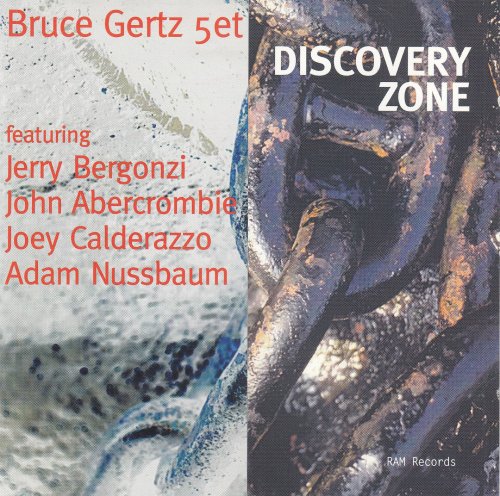
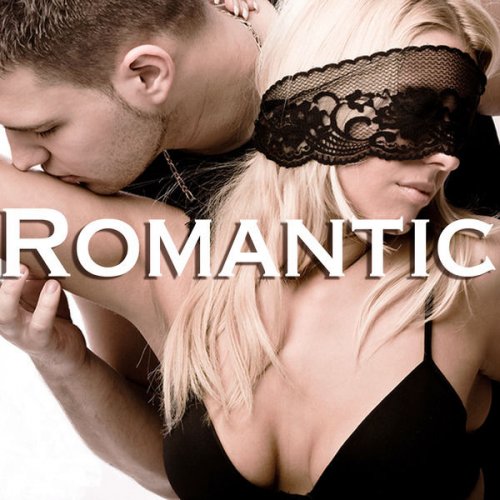
![Maria Baptist - The Bright and the Dark Vol. 2 (2025) [Hi-Res] Maria Baptist - The Bright and the Dark Vol. 2 (2025) [Hi-Res]](https://www.dibpic.com/uploads/posts/2025-12/1764682415_folder.jpg)
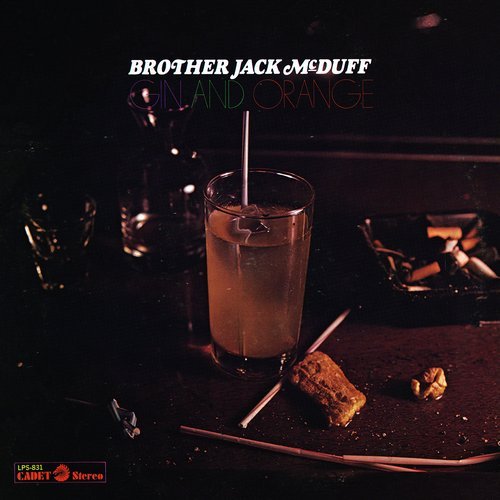
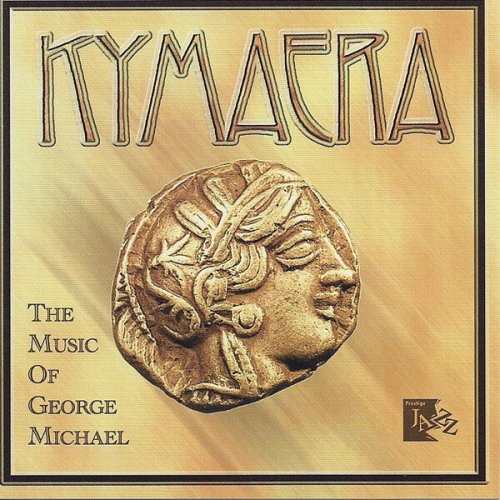
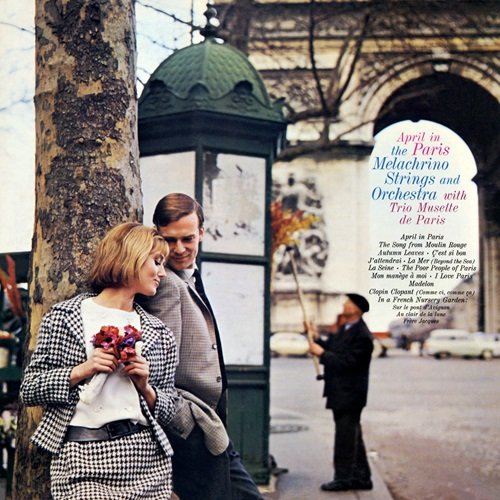

![Vancouver Jazz Orchestra & James Danderfer - Vancouver Jazz Orchestra Meets Brian Charette (2025) [Hi-Res] Vancouver Jazz Orchestra & James Danderfer - Vancouver Jazz Orchestra Meets Brian Charette (2025) [Hi-Res]](https://www.dibpic.com/uploads/posts/2025-12/1764898784_ibhlh0kixkxqc_600.jpg)
